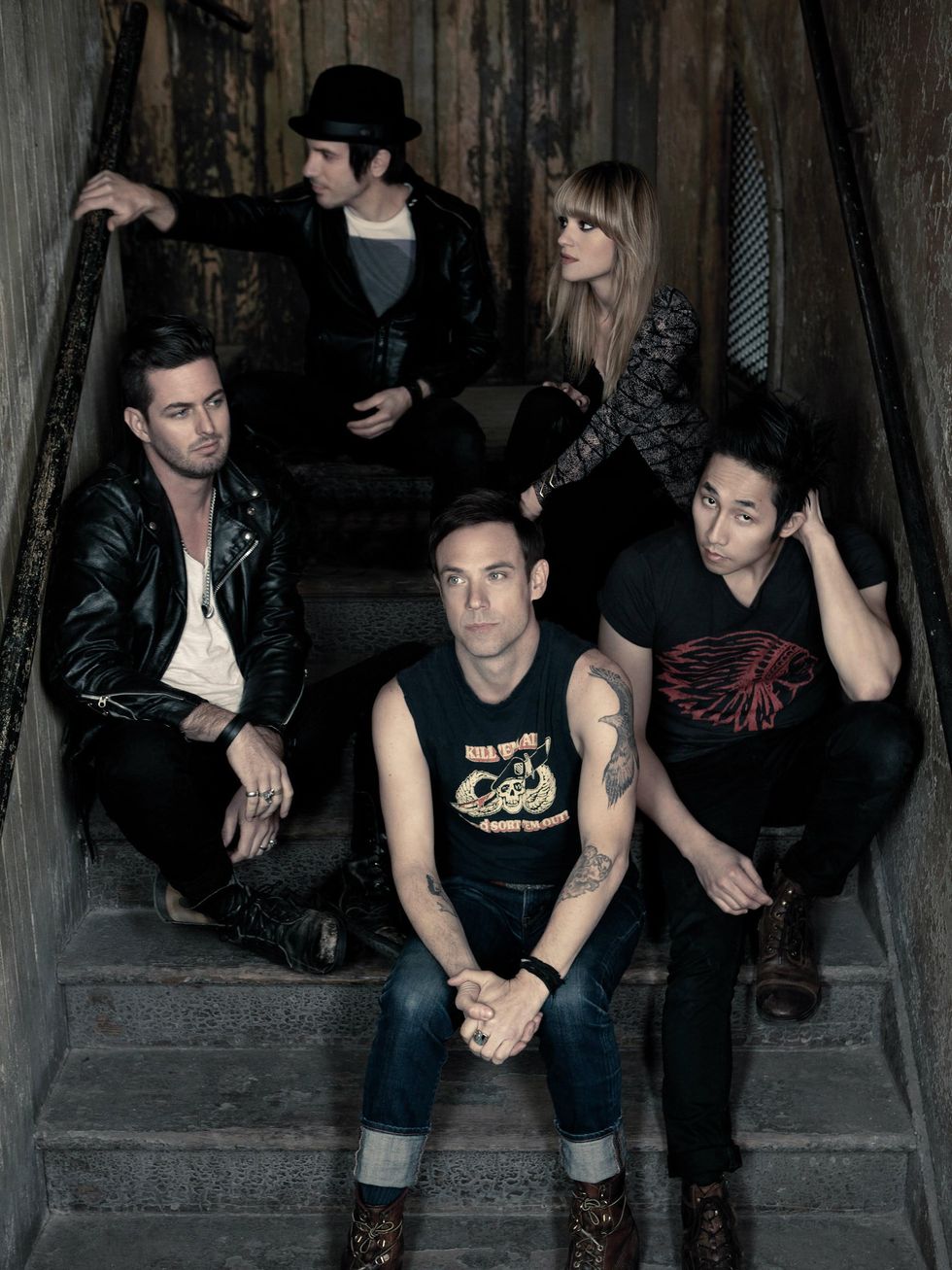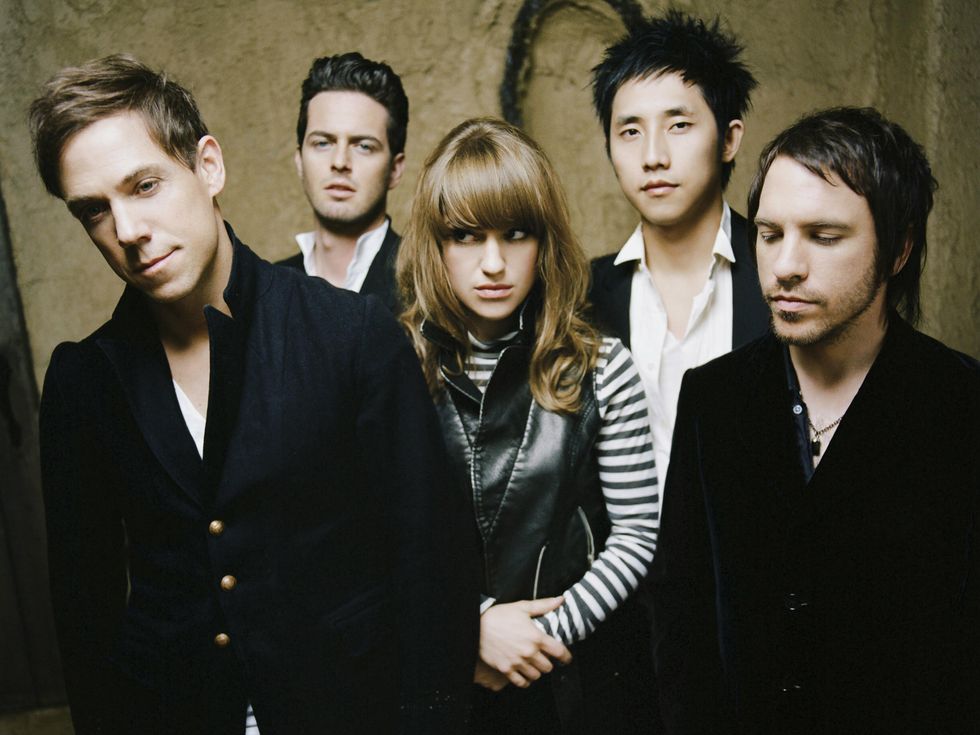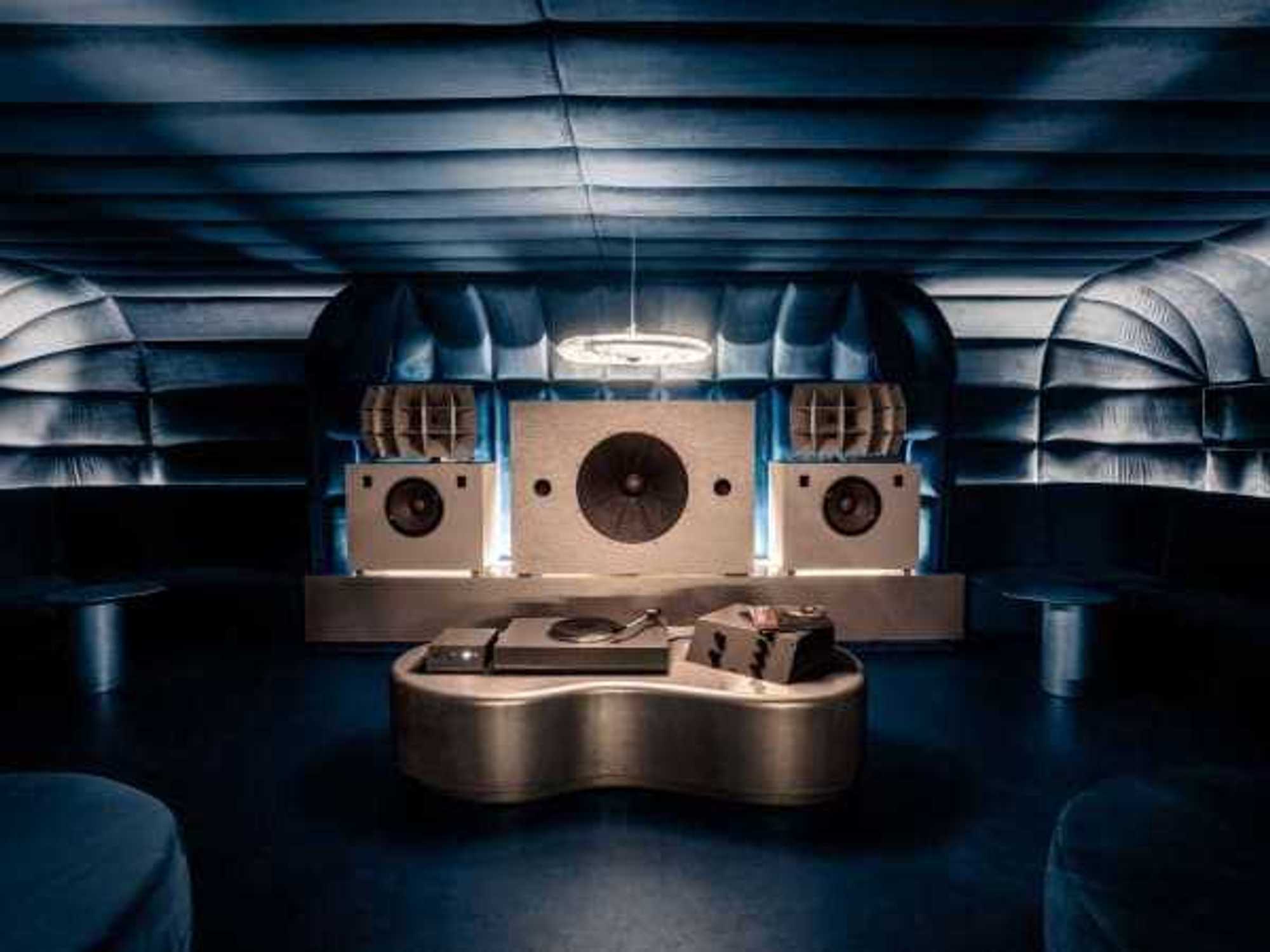Hot Blooded
The Airborne Toxic Event's Mikel Jollett on insecurity and rocking like it's the end of the world
Since the sweeping, thrilling tale of sadness "Sometime Around Midnight" became a smash hit in 2008, the Airborne Toxic Event has rocked stages large and small — with the occasional massive orchestra — around the world. Instead of spiraling into obscurity after rocketing to stardom, the California-based group only built steam as they continued to tour and work on new material.
On last year's excellent, multitextured LP, All At Once, the band introduced variety into their sound and the way in which Mikel Jollett, the group's songwriter and lead singer, relayed his stories. The release of their third full-length album, Such Hot Blood, is imminent and promises just as many surprises.
"I'm always awestruck when people come to see us," Jollett says. "It's a privilege to have grown, but it's sort of terrifying too."
With the band fresh off of a run through Europe, CultureMap is proud to welcome the five-piece outfit to Texas for three intimate, sold-out concerts in Dallas (March 7), Austin (March 8) and Houston (March 9). Given the occasion, we chatted with Jollett from his West Coast home about artistic insecurity, F. Scott Fitzgerald and how a rock show can feel like the end of the world.
CultureMap: At the Austin City Limits Festival in 2009, you seemed surprised at the size of the crowd, and you asked the thousands gathered how they knew about Airborne Toxic Event. Have you grown accustomed to large crowds now?
Mikel Jollett: Well, I still think that no one's going to show up to our shows. I don't know if that's natural artistic insecurity or what, but I always think that we'll get there and no one else will be there. Even when I hear that a show is sold out, I still don't believe people will be there. I just assume that everyone will have changed their minds on the same night.
Actually, at last year's ACL Festival, we were playing at the same time that The Walkmen were going to play, and I love The Walkmen. I was convinced that no one would choose to see us over them, but when we walked out onto the stage, there were 35,000 people there for us. I was awestruck by that. I'm always awestruck when people come to see us. It's a privilege to have grown, but it's sort of terrifying too.
CM: As I watched the 2009 ACL set, it seemed as though you were having fun performing, though.
MJ: We love it, and when we play a live show, we want to make it feel like it's the last night on earth. We don't know what's going to happen tomorrow, maybe we'll all die, but tonight, we have this rock show. I love the challenge of walking onstage and saying "Hello," and then trying to create that type of feeling inside of two or three hours.
CM: Most of your songs are autobiographical. Are you surprised that your life continues to provide material for your music?
MJ: I think of F. Scott Fitzgerald and his book, This Side of Paradise. In it, a young man is talking to his mentor about living a scholarly life, which really meant that he wanted to leave a record of something behind.
"When we play a live show, we want to make it feel like it's the last night on earth."
It's this long talk, and the mentor says to the young man, "You're not going to live a different kind of life than anyone else. You'll have the same ups and downs as most other people. The difference is, you will leave a record of your life behind."
I feel that way. I don't feel any more charmed or cursed than anyone else, most of the time [laughing], but I think the difference is, by my writing about my life, I'm leaving a record behind.
CM: As a writer, how do you deal with the challenge of progressing and evolving while retaining a signature sound?
MJ: I'm always trying to get rid of any sort of signature sound we have. I want to take that apart and do something different with it. This new record has songs with orchestras on them, and then songs with foot-stomps, hand-claps and melodies. The last record had plenty of keyboards, where the new one barely has any keys on it. I want it to be fresh for me and for the audience.
Once you retread ground, you're not going to be inspired. Looking back on three albums and the live record [2010's All I Ever Wanted], there are certain decisions I've tended to make, and that we as a band have tended to make, where things tend to end up being epic. "Timeless" is the biggest-sounding thing we've ever made, and initially, I didn't want anything like that on this record. At first, I wanted only hand-claps and finger-snaps, but we wrote some songs, and the direction of the record's story went differently.
CM: Had you begun the recording process when you realized that the record you had planned wasn't the record you were going to make?
MJ: It was before I really got too deep into the writing of the record. It wasn't after we had started recording or anything like that. "True Love," and "Bride and Groom" are songs on this record that will sound as I originally had planned. But when I wrote the song, "The Fifth Day," it had this huge orchestral arrangement and needed big vocals.
Then I wrote "Timeless" with a distorted horn sound and some big guitars going on, and those things helped tell the story I wanted to tell in a different way than I had first thought about. I only wrote 10 songs for this record. Those are the ones that ended up on the record.
I wrote 100 songs for the last album and 60 for the first album, so I took more time with these 10, since I knew I wanted them to make up the new record. The record took a year to make, and I spent a lot of time with the details and the ideas and the melodies. Each song was a real project.
CM: You mentioned orchestral arrangements for the record, but your band has performed with orchestras plenty of times in concert settings. What's it like to do a show with dozens of extra people onstage?
MJ: It's really nerve-wracking, because there's 63 extra people onstage. But the main reason that kind of show is nerve-wracking for me is that I can't read music. I'm the only one on the stage who can't read music in that scenario, and I'm leading the whole thing! The rest of the band can read music and the charts, but not me.
It's kind of like being at the nose of a spaceship, and you're just being propelled along while you try to steer, even though you don't know how to steer the thing.
CM: Given the Airborne Toxic Event's sound is so big and epic, it will be pretty cool to see if the band can rattle the walls of places like 7 Senses in Dallas, where one of the CultureMap events takes place.
MJ: I love rattling walls. I play rock and roll. I'd love to be able to rattle the walls of that place!
---
Want to win tickets to the sold-out Dallas show? Enter now for your chance.



